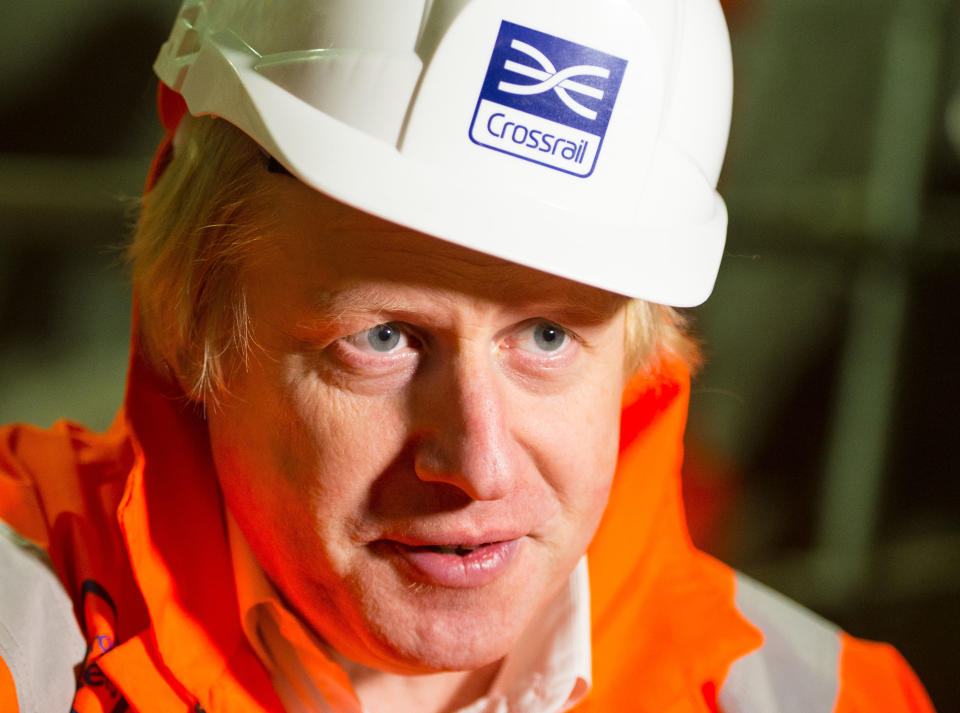Boris Johnson's industrial strategy is causing a headache for big business

According to major manufacturing investors, businesses are increasingly worried about Boris Johnson’s potential approach to industrial strategy if given the keys to Number 10.
Johnson, who is favourite to become Prime Minister, has alarmed many in manufacturing with his approach to HS2 over the course of the past few weeks.
A source at a major inward investor told Yahoo Finance that “Johnson has a lot to do to regain trust from UK plc," especially after he allegedly said "f*ck business," telling business "to go forth and multiply."
Given his no-deal Brexit threat, our source said "it would send a terrible signal if he caved into HS2 nimbyism or gave up on the industrial strategy, which has been one of the few positives for business in recent years.”
Boris’ inconsistency on HS2 is a particular point of ire for many trying to ascertain what his industrial strategy would be in Number 10. Businesses involved in the project find themselves confused by Johnson’s timidity to HS2 given his instinctive love of large infrastructure projects.
A source close to Johnson said the former Foreign Secretary planned to invest in HS3 and rail links in the ‘northern powerhouse,’ and also was keen to invest in metro services outside of the nations capital.
That being said, sources close to Johnson state he’s in favour of a full review of HS2 if he is selected as prime minister by Conservative Party members. The review would be conducted by Douglas Oakervee, who was formerly chairman of both the HS2 project and Crossrail, with a deadline of December being set for the review to be completed and a decision to have been made by.
Concern regarding Johnson’s position on the rail project exists within parliament too. A key supporter of the legislation was downbeat when asked about the projects future by Yahoo Finance: “The mood is shifting against HS2. Department for Transport ministers have done the best they can to explain the value of the project, but it’s now entirely down to politics.
“Boris [Johnson’s] team might torpedo the bill just to gain the trust and support of MPs and crucial voters in the countryside. There is a feeling that policy has gone as far as it can. It’s all politics from now on.”
Johnson has also faced criticism over his tax policies, which the Institute for Fiscal Studies (IFS) have declared would benefit the richest most. Johnson’s plan to adapt existing thresholds would see the lowest number of taxpayers within the highest rate threshold in nearly thirty years.
The IFS have calculated that the policy would cost almost £9bn and benefit the four million or so taxpayers with the highest incomes - the majority sitting in the top 10% of taxpayers. According to their analysis, the IFS also predicts the average beneficiary will be up by the tune of around £2,500 a year.
Johnson has also proposed changes to National Insurance Contributions (NICs), which the IFS said was “probably the best thing one can do through the tax system to help low earners.” They did say however, that most of the benefit would be felt by high earners, and an increase in tax credits would be the most effective way to help low earners in low income households.
Addressing the criticism, an ally of Johnson pointed to his pro-business record whilst mayor of London, and said it would have been difficult to find a politician in the late 2000s who was more pro-business during the financial crisis.

 Yahoo Finance
Yahoo Finance 